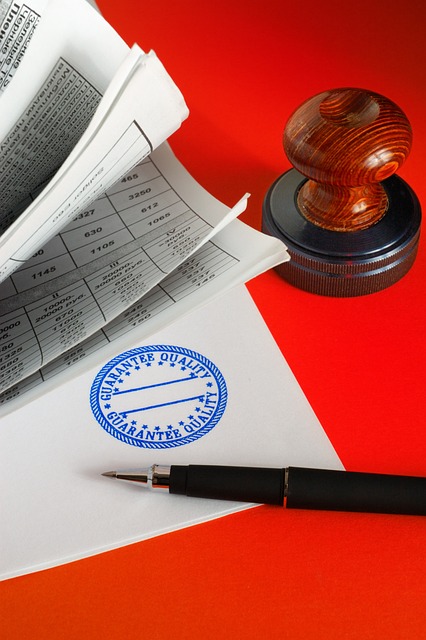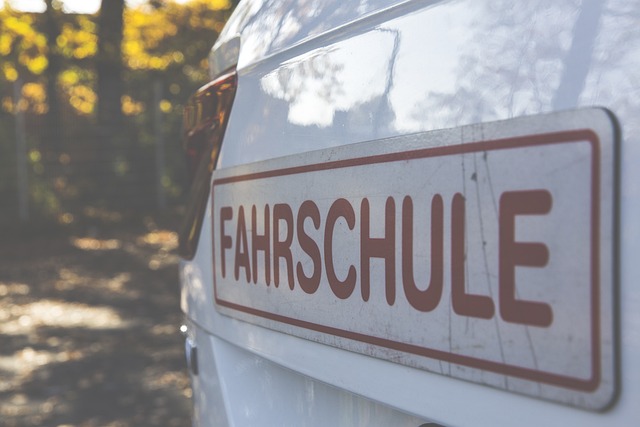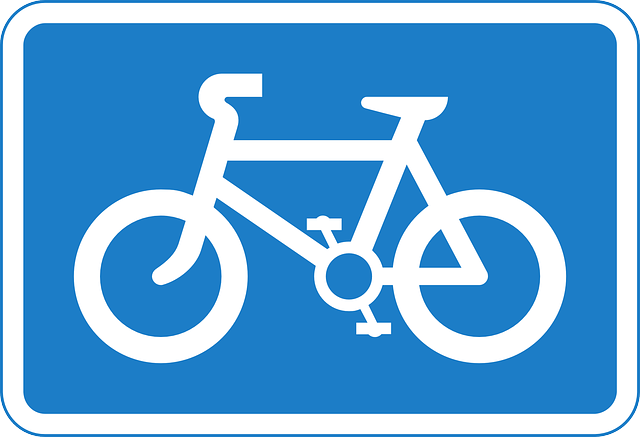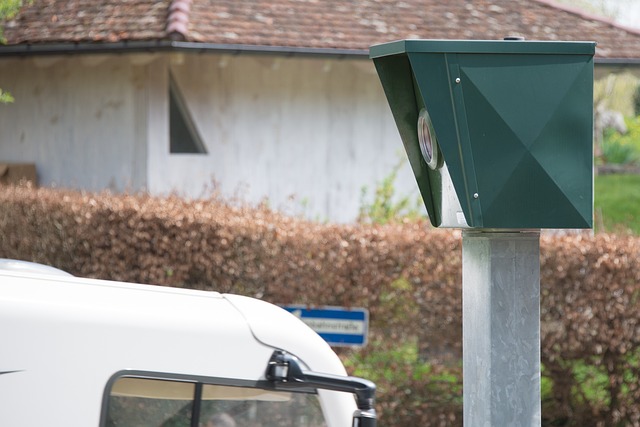When it comes to accurately translating UK licenses and permits for international use, specialized UK translation services are indispensable. These expert services ensure that the nuances of legal terminology within British regulatory frameworks are captured precisely, which is crucial for maintaining the legal integrity and compliance of documents in a global context. Utilizing professionals who are accredited and possess deep knowledge of UK legal terminology, particularly those associated with esteemed bodies like the Institute of Translation and Interpreting (ITI) or the Chartered Institute of Linguists (CIOL), is essential for businesses and individuals alike to navigate international regulations successfully. This level of precision and expertise is not just about language—it's about safeguarding the legal standing and operational capabilities of UK entities wishing to engage with the global marketplace.
Navigating the complexities of international business operations often hinges on clear, precise communication. In the United Kingdom, this is particularly true when dealing with licenses and permits, documents that are foundational to legal compliance and market entry. Accurate translation of these documents is not just a matter of language; it’s a critical component of operational success. This article delves into the intricacies of translating UK license and permit documents, highlighting the necessity for precision and the benefits of leveraging specialized translation services. We will explore the various types of UK licenses and permits that businesses frequently encounter, the importance of cultural nuances in translation, and the steps to ensure document integrity. Furthermore, we will address the challenges of translating legal jargon, the role of technology, and how to verify the authenticity of translated documents. With a focus on compliance, accuracy, and reliability, this guide aims to provide businesses with the tools they need for successful translation of UK licenses and permits.
- Understanding the Importance of Accurate Translation for UK Licenses and Permits
- Overview of UK Licenses and Permits Required by Businesses
- The Role of Professional Translation Services in Legal Documentation
- Common Types of UK License and Permit Documents That Require Translation
- Key Considerations When Translating Licenses and Permits for the UK Market
- Navigating the Translation Process: Steps to Follow for UK Documents
- Identifying Certified and Accredited Translation Services for UK Legal Papers
- The Challenges of Translating Legal Jargon in Licenses and Permits
- Ensuring Compliance with UK Legislation When Translating Licenses and Permits
- Case Studies: Successful Translations of UK License and Permit Documents
Understanding the Importance of Accurate Translation for UK Licenses and Permits

When engaging in business or legal activities within the United Kingdom, it is imperative to ensure that all licenses and permits are accurately translated for stakeholders who do not speak English as their first language. The UK’s translation services play a crucial role in this context, offering precise translations of documents that facilitate compliance with local regulations and legal requirements. Accurate translations are essential for avoiding misunderstandings or misinterpretations of the terms and conditions associated with these documents. This is because UK licenses and permits often contain specific legal language and terminology that, if mistranslated, could lead to non-compliance, legal complications, or even operational setbacks.
Licenses and permits issued in the UK are governed by stringent regulations and standards. These documents can be related to various sectors such as healthcare, finance, construction, and environmental management. Inaccurate translations could compromise the integrity of these operations, leading to potential legal penalties or loss of credibility in the market. Therefore, leveraging professional translation services is not just a matter of communication but a strategic necessity for maintaining operational efficiency and legal standing within the UK’s regulated environment. By choosing reputable UK translation services, businesses and individuals can ensure that their translations are not only accurate but also culturally appropriate and legally sound, thereby safeguarding their interests in this dynamic and legally intricate market.
Overview of UK Licenses and Permits Required by Businesses

navigating the complex array of licenses and permits required by businesses in the United Kingdom can be a daunting task for entrepreneurs, especially those who are not familiar with local regulations. The UK’s diverse business sectors necessitate various types of authorization to operate legally and effectively. These range from food safety and environmental health certifications to alcohol and entertainment licenses. For businesses seeking to expand internationally or to ensure compliance across different localities within the UK, translating these documents into the appropriate languages becomes imperative. Proficient UK translation services play a pivotal role in this process, providing accurate translations of licensing documents that facilitate seamless operations and legal compliance for foreign enterprises. Businesses must identify the specific licenses relevant to their activities; this includes understanding the distinctions between different types of permits, such as those pertaining to health and safety, financial services, or trade and imports. By leveraging specialized UK translation services, companies can navigate these requirements with greater confidence, ensuring that all regulatory documents are accurately translated to maintain legal standing and operational integrity within the UK market.
The Role of Professional Translation Services in Legal Documentation

When it comes to legal documents such as licenses and permits issued in the UK, accuracy and precision are paramount. The complexity of legal language makes the translation process not just a matter of word-for-word conversion but a nuanced task that requires a deep understanding of both the source and target languages, as well as the legal context. Professional translation services specializing in legal documentation offer expertise that ensures translations are both legally and culturally accurate. These services employ translators with specialized knowledge in legal terminology and procedures, ensuring that the essence and intent of the original UK license and permit documents are accurately conveyed. This is crucial for maintaining compliance and avoiding potential legal pitfalls that could arise from misinterpretation or mistranslation. By leveraging the skills of these professionals, individuals and organizations can navigate international boundaries with confidence, knowing their legal papers have been translated with the highest level of professionalism and care. In doing so, they mitigate risks associated with language barriers and ensure that all parties involved can rely on the translated documents for decision-making and legal compliance.
Common Types of UK License and Permit Documents That Require Translation

When navigating the complexities of UK license and permit documents, precise and accurate translations are paramount. UK translation services specialize in converting various official documents that are crucial for both individuals and businesses operating within the UK or seeking to enter its market. Common types of UK licenses and permits that often require professional translation services include driving licenses, firearm certificates, personal alcohol licenses, and food hygiene certificates. Each of these documents contains specific information and legal nuances unique to the UK regulatory framework, making expert translation essential for ensuring compliance and understanding.
For instance, a foreign individual applying for a UK driving license must provide an accurate translation of their existing driving documentation. This ensures that the UK Driver and Vehicle Licensing Agency (DVLA) can process the application without delay or error. Similarly, businesses requiring health and safety permits, environmental permits, or alcohol licenses must present translations that convey all details correctly to comply with local regulations. UK translation services are adept at handling such documents, providing translators who are not only linguistically proficient but also knowledgeable in the specific context of UK licensing and permit requirements. This expertise guarantees that all translated content is legally sound and functionally equivalent to the original English text.
Key Considerations When Translating Licenses and Permits for the UK Market

When embarking on the task of translating licenses and permits for the UK market, it is imperative to engage with specialized UK translation services. These documents often contain complex legal terminology, specific jargon, and cultural nuances that can significantly impact the interpretation and validation of the translated content. The accuracy of such translations is not just a matter of linguistic precision but also of legal compliance, as incorrect translations could lead to unintended legal consequences or operational setbacks. To navigate these challenges effectively, it is crucial to work with translation services that possess a deep understanding of both the source and target languages, as well as the specific regulatory framework governing UK licenses and permits.
Furthermore, the translator must be well-versed in the nuances of legal documentation to ensure that all technicalities are accurately conveyed. This includes understanding the context and implications of each term used within the document. The chosen translation services should also be adept at cultural adaptation to guarantee that the translated text aligns with UK standards and expectations, avoiding any confusion or misinterpretation. By leveraging professional UK translation services, businesses can ensure that their licenses and permits are accurately represented in English, thereby facilitating a smoother and more successful entry into the UK market.
Navigating the Translation Process: Steps to Follow for UK Documents

When engaging in activities that require official licenses or permits in the UK, it’s imperative to ensure that all necessary documents are accurately translated, especially for individuals and businesses operating internationally. The translation process for UK documents involves a series of precise steps to guarantee both the linguistic and regulatory accuracy of the content. Firstly, one must identify the specific type of document and its intended use abroad, as this will dictate the required language proficiency and legal recognition of the translated text. Professionally accredited UK licenses and permits translation services are equipped to handle such documents, adhering to the stringent standards set by regulatory bodies in both the source and target languages.
Upon selecting a reputable translation service, the document undergoes an initial review to determine its nature and context. This step is crucial for translators to understand the content’s nuances and the appropriate terminology. The next phase involves the actual translation process, where skilled linguists with expertise in legal and regulatory texts take on the task. They meticulously convert the document’s content into the target language while maintaining its original intent and meaning. Subsequent to this, a thorough review and editing process are conducted to ensure accuracy, coherence, and compliance with legal requirements. Finally, the translated document undergoes a quality assurance check by a second translator or a proofreader, ensuring that it aligns with the standards expected by authorities in the target jurisdiction. This multi-layered approach is essential for maintaining the integrity of UK licenses and permits when they cross international borders.
Identifying Certified and Accredited Translation Services for UK Legal Papers

When it comes to translating UK legal documents such as licenses and permits, precision and expertise are paramount. Accurate translation is not just a matter of conveying meaning but ensuring legal terms and conditions retain their original intent and compliance. To navigate this complex task effectively, individuals and organizations should seek out certified and accredited translation services that specialize in UK legal papers. These services guarantee that the translators are proficient not only in the source and target languages but also well-versed with the legal terminology specific to UK regulations. A professional translation service will have translators who are members of recognized bodies, such as the Institute of Translation and Interpreting (ITI) or the Chartered Institute of Linguists (CIOL), thereby ensuring the highest standards of quality and reliability. This expertise is crucial for maintaining the legal validity of documents and for avoiding potential complications that could arise from mistranslations. By opting for certified UK translation services, clients can proceed with confidence, knowing their licenses and permits have been accurately translated and are ready for submission to the relevant UK authorities.
The Challenges of Translating Legal Jargon in Licenses and Permits

Navigating the intricacies of translating UK license and permit documents presents a unique set of challenges that go beyond mere linguistic conversion. The dense legal jargon often found within these texts poses significant hurdles for translation professionals. The terminology used in UK licenses and permits is highly specialized, with terms that can have precise legal implications; hence, the translator must not only be proficient in both the source and target languages but also possess a deep understanding of the relevant legal systems. This is crucial to accurately convey the meaning and intent of the original document, ensuring that the translation remains legally sound and compliant with the regulations of the intended jurisdiction.
UK translation services face the additional complexity of ensuring consistency in terminology across different documents, as well as adapting to the evolving legal landscape. The task requires a meticulous approach, where every legal term, acronym, and nuance is carefully analyzed and appropriately translated. This attention to detail is paramount, as minor discrepancies can lead to misunderstandings or non-compliance with local laws. Therefore, professional UK translation services employ expert linguists with specialized knowledge in the field of law, leveraging their expertise to deliver translations that are both accurate and legally equivalent to the original texts.
Ensuring Compliance with UK Legislation When Translating Licenses and Permits

When embarking on the task of translating licenses and permits from or into the United Kingdom, it is imperative to adhere strictly to the legislation governing such documents. UK translation services must possess a comprehensive understanding of the relevant legal frameworks to ensure the translated content accurately reflects the original text’s intent, tone, and meaning. The UK’s legislative environment for licenses and permits is intricate and varies across different sectors and jurisdictions, necessitating a nuanced approach to translation. Professional translators specializing in UK licensing documents are equipped with the necessary expertise to navigate these complexities, ensuring that all terms, conditions, and stipulations are accurately conveyed in the target language. This meticulous adherence to the source material’s spirit and letter is crucial for the translated licenses and permits to be accepted and valid for their intended purposes by UK authorities. By leveraging specialized UK translation services, organizations can confidently bridge linguistic barriers while maintaining compliance with stringent legal requirements.
Case Studies: Successful Translations of UK License and Permit Documents

UK businesses and individuals often require accurate translations of licenses and permits for operations across diverse international markets. The importance of precision in such documents cannot be overstated, as errors can lead to legal complications or denial of services. A prime example of successful translation services involves a UK-based pharmaceutical company that was expanding into European markets. The company’s research and development licenses were critical for regulatory compliance. Utilizing specialized licensing and permit translation services from the UK, the documents were meticulously translated into the target languages, ensuring compliance with local regulations and facilitating seamless market entry. Another case study highlights a UK tech startup that sought to protect its intellectual property abroad. The startup engaged professional translators to convert their patents into German and French, which not only preserved their innovations’ integrity but also opened doors for strategic partnerships in those regions. These instances underscore the value of expert UK translation services for licenses and permits, which are indispensable for maintaining legal validity and operational success on an international scale.
In conclusion, navigating the complexities of UK licenses and permits requires meticulous attention to detail, particularly when it comes to accurate translation services. This article has shed light on the critical nature of precise translations in legal documentation within the UK market. Businesses must understand the types of documents that necessitate professional translation and the challenges inherent in converting legal jargon into clear, comprehensible text. The outlined steps for the translation process, coupled with the identification of accredited translation services, ensure compliance with local legislation and facilitate a smooth transition for entities operating within the UK. By leveraging the expertise of seasoned translators, businesses can effectively bridge language barriers, unlock new opportunities, and operate confidently in the British regulatory environment. Accurate UK translation services are not just a formality but a cornerstone of successful international engagement and legal compliance.
